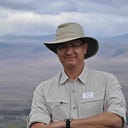WORLD’S OLDEST BIBLE
Science and the Discovery of the Dead Sea Scrolls (Part 1)
Jesus was born in a specific time and space as a first century Roman Palestinian Jew who read the Greek translation of the Hebrew Bible.
These three cultures shaped modern Christianity as it emerged in the fourth century from the Jesus Movement. However, its ancient roots hark back to the migration of one man, Abram of Mesopotamia, who came to be known as Abraham in Egypt. His descendants eventually settled in Canaan and lived as Hebrew-speaking Jews in Israel.
Their story included cultural, religious and scientific contributions from the Assyrian, Babylonian, Persian, Hellenistic Greek and Roman empires before the Fall of Jerusalem in AD 70 dispersed their religious factions throughout the Roman Empire.
The seeds of Christianity were sown by Saul of Tarsus, who became Paul the missionary. Along with Peter, he planted churches throughout the Mediterranean and the Black Seas. Their legacies nursed the flames of imperial passion that led Rome to triumph over their four competitors for institutional supremacy. Constantinople, Alexandria, Antioch and Jerusalem would continue to make significant contributions to the eventual medieval theology of the Christian faith as Latin-speaking traditions began to dominate Greek-speaking faith communities. The writing, binding and eventual printing of the Bible in the 5th century BC, the 4th century AD and the 15th century AD marked linguistic transitions from Hebrew, Aramaic and Greek to Latin, German and eventually to modern English.
In this book, you will learn that the most significant biblical event in the 20th century was the archaeological discovery of the world’s oldest Bible — the Dead Sea Scrolls. It took almost 50 years before the texts were fully made available to the world.
Science and technology were at the forefront of the recovery, analyses and continuing understanding of the scrolls. Hundreds of biblical scholars, theologians and scientists labored to identify, date, and edit this stash of some 200,000 fragments and near complete scrolls. They affirmed the age and authenticity of our modern Biblical translations while showing how fluid scripture was in Jesus’ time, with different versions of the same book, different editions of the same accounts from other ancient sources and even different measures of heights and numbers of people in several stories. This discovery once for all settled the issue of why scriptural authority has nothing to do with textual inerrancy but rather with communal validity.
Five examples show how scientific advances and technological innovations extend the human senses to reveal God’s creation never hitherto known, changing our assumptions about God and enriching our marvel at God’s majesty. We shall learn how the trusted testimonies became sacred scriptures, and the role played by the acquisition of speech, the inventions of writing and mathematics, and the achievements of philosophical thought to conceptualize religious reflections. They show that God’s revelation through the written texts was gradual, evolving alongside the human mind’s capacity to understand nature, and why our modern Bibles continue to be revised as new versions to this day. The Dead Sea Scrolls affirm a suspicion of the ancient Jews when they worried about writing down God’s word into scripture: How can we contain God within human thought?
Today, spiritual integrity demands intellectual humility as we attend to humanity’s legacy of God’s revelation in nature, testimony and reason.
In this book, we shall consider these questions and more, some of which you may have always wanted to ask:
- Who wrote the Bible?
- Where is the original Bible?
- Why are there multiple Bible versions with one coming out in 2022?
- Why are there multiple Bible translations even in the same language?
- Why are there multiple Bible compositions (66–85 books) for different traditions?
- Why was the New Testament written in Greek when every writer was Jewish?
- Which 3 non-Jewish kings of Persia, Egypt and Rome initiated the writing of the Bible?
- Are advances in science, technology and archaeology pertinent to the Bible?
- Are advances in history, linguistics and literary studies pertinent to the Bible?
